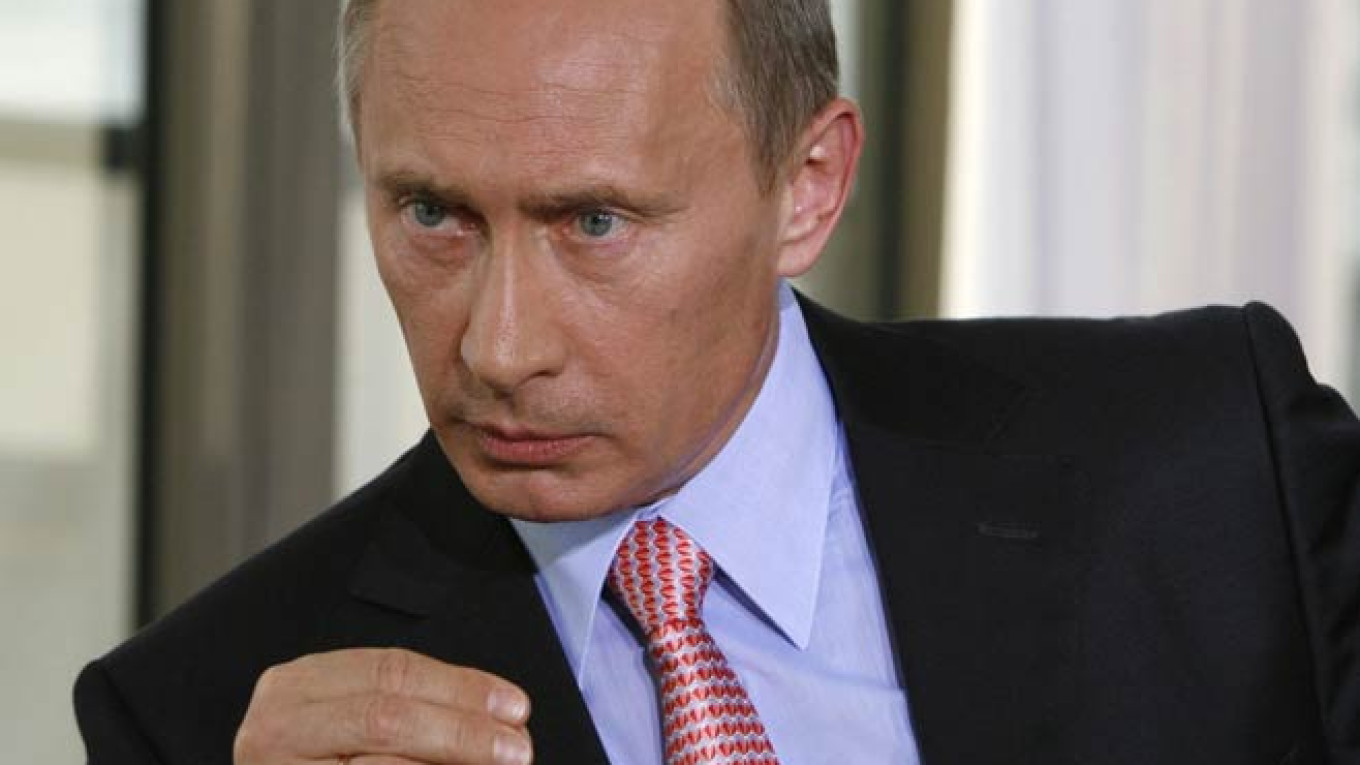Russia's Crimea annexation has led to many absurd accusations against President Vladimir Putin as a revisionist thinker bent on building a neo-Soviet empire. Western governments, especially the U.S., are now acting on this theory by trying to "contain Putin's revisionism" through tough sanctions, ultimatums and displays of military force on Russia's borders.
Despite these accusations, Putin remains a defensive thinker aiming to protect Russia's international interests by available means. His reasoning is that after the Cold War, the U.S. violated the existing power boundaries by interfering in Yugoslavia, Eurasia and elsewhere. They have split those states that put up a resistance to the West's power ambitions by then recognizing independence of new states that were compliant to the West.
The West has repeatedly suggested that Russia should mind its own business and accept its status as a diminished "regional power."
What's more, through the tactics of "color revolutions," the West removed from power those rulers who were close to Russia by replacing them with nationalist and Russophobic ones. Every time Russia raised objections, it was told to forget about? 19th-century geopolitics and think like a 21st-century power.
Accompanied by calls to be on "the right side of history," the West has repeatedly suggested in one way or another that Russia should mind its own business and accept its post-Soviet status as a diminished "regional power." To Putin, the West's fundamental approach to Russia was insulting.
Nonetheless, Putin tried to explain Russia's position and interests, but his words fell on deaf ears. The attempt to build ties between U.S. President Barack Obama and then-President Dmitry Medvedev did not stop the U.S. from deploying elements of a missile defense system in Europe and continuing expansion into Eurasia. The February revolution in Ukraine in violation of the agreement reached by Ukrainian President Viktor Yanukovych and the opposition meant the end of all hopes to normalize relations with the Obama administration.
Under the conditions of Western revisionism, Putin had to rely on unorthodox and asymmetrical tools to stand his ground and preserve the balance of power in Ukraine. One tool that was used was the annexation of Crimea. By doing so, Putin secured the future of the Black Sea Fleet and strengthened the country's geopolitical position. Never again will Russia have to negotiate leases with potentially unfriendly Ukrainian governments. ?
The other tool that Moscow is currently using is military deterrence aimed at Kiev. By amassing troops on the Ukrainian border, Putin seeks to achieve two objectives. First, he wants to prevent Kiev from using force against protesters in southeastern Ukraine. This strategy has been successful. For example, Kiev already announced that it was changing the terms of its "anti-terrorist operation" and would now blockade Slovyansk in eastern Ukraine instead of storming it. If Kiev had tried to take the city by force, it would likely have been tantamount to Georgia's shelling of South Ossetia's Tskhinvali in August 2008, which resulted in large civilian casualties. Russia then would have then had to cross the Ukrainian border to protect ethnic Russians in Slovyansk and other cities in the Donbass region.
Second, Putin wants to keep the military on the Ukrainian border as political leverage in negotiating better conditions with Kiev. Otherwise Ukraine's nationalists, emboldened by frequent trips of the U.S. vice president and CIA director, might think it can issue demands to Russia and interpret the Geneva agreement as it sees fit. The Kremlin does not want a military invasion of Ukraine, but future negotiations between Kiev and eastern provinces may just be more effective with Russia's proven deterrent capacity.
In the geopolitical competition with far more powerful Western countries, Russia must rely on asymmetrical tools — particularly if Moscow has any chance of preserving its influence in Eurasia. As the governor of the Caucasus, Prince Alexander Baryatinsky once noted: "England displays its power with gold. Russia, which is poor in gold, has to compete with force of arms."
Despite its weaknesses and vulnerabilities, Russia continues to hold major advantages in Eurasia. It is useless trying to change the Kremlin's mind through sanctions, lecturing and public posturing. Ukraine is Putin's last stand. He will play the game of power competition to the end. To prevent bloodshed in Ukraine, the West must discourage Kiev from using force and encourage it to negotiate in earnest with the east and south of the country.
Andrei Tsygankov is professor of international relations and political science at San Francisco State University.
A Message from The Moscow Times:
Dear readers,
We are facing unprecedented challenges. Russia's Prosecutor General's Office has designated The Moscow Times as an "undesirable" organization, criminalizing our work and putting our staff at risk of prosecution. This follows our earlier unjust labeling as a "foreign agent."
These actions are direct attempts to silence independent journalism in Russia. The authorities claim our work "discredits the decisions of the Russian leadership." We see things differently: we strive to provide accurate, unbiased reporting on Russia.
We, the journalists of The Moscow Times, refuse to be silenced. But to continue our work, we need your help.
Your support, no matter how small, makes a world of difference. If you can, please support us monthly starting from just $2. It's quick to set up, and every contribution makes a significant impact.
By supporting The Moscow Times, you're defending open, independent journalism in the face of repression. Thank you for standing with us.
Remind me later.


